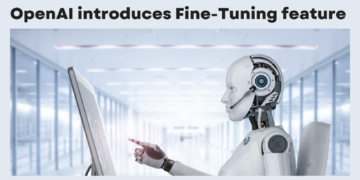Intelligent Automation, integrating Artificial Intelligence (AI) and automation technologies, has become a crucial tool for organizations looking to improve their processes and operations. By leveraging intelligent Automation, businesses can significantly improve efficiency, productivity, and customer satisfaction.
However, simply using Automation to speed up processes is just the beginning. The real potential of intelligent Automation lies in its ability to help businesses make better decisions and improve outcomes by using AI to analyze data and gain insights. This can help organizations identify areas of improvement, optimize processes, and even develop new products or services.
Businesses should adopt a visionary approach considering the long-term benefits of Automation and AI. They should be results-oriented, focusing on tangible outcomes and measurable ROI. Additionally, enterprises must be data-driven, prioritizing data quality, accessibility, and analysis.
Implementing intelligent Automation also requires effective use of ecosystems and data democratization. This means that businesses should work to build strong partnerships with technology providers, leverage open-source technologies, and collaborate with other companies to build complementary products and services. Data democratization involves making data accessible and usable to all organizational stakeholders so that everyone can make informed decisions based on the available data.
Intelligent Automation has revolutionized traditional and digital businesses by making them more efficient and effective. However, only a few companies have successfully transformed their processes through Automation. This is because of insufficient business engagement, poor planning, and lack of focus on consumer context. Intelligent Automation provides numerous opportunities beyond being “smart” and “fast.”
Here are seven ways to transform Automation:
- Stay focused on clear business outcomes
- Envision end-to-end automation
- Take a data-driven approach
- Keep in mind the ecosystem play
- Plan Automation for configurability
- Democratize IA to achieve scale
- Plan for perpetual innovation
To transform Automation, enterprises must adopt an elevated mindset that focuses on the end game and provides a holistic view of all factors that affect outcomes. Companies must take an end-to-end approach and ensure that all automation components work in continuity. They should also take a data-driven approach, guide automation levers, and assess automation maturity. Businesses must look beyond their enterprises and find ways to partner with academia, start-ups, and other established companies.
Companies should plan Automation for reconfigurability and build the capability to incorporate modular changes. Organizations must democratize IA and create a robust framework to assess, prioritize, and track citizen development initiatives to scale Intelligent Automation solutions across the enterprise.
Lastly, companies must plan for perpetual innovation and create a model where employees desire to experiment with ideas and develop innovative automation use cases.



























